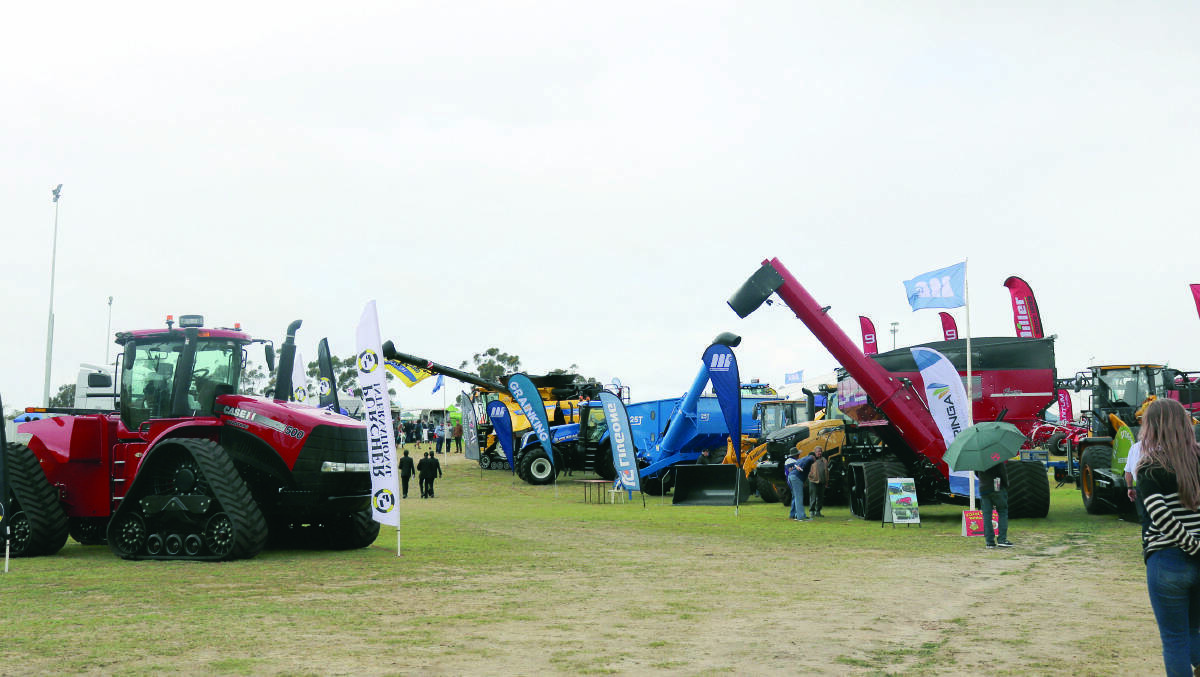
ONLY last minute political intervention to change taxation legislation will help farmers claim full depreciation deductions on agricultural machinery held up at port or by other supply chain delays.
The Australian Taxation Office (ATO) has confirmed it has no "discretion" under present tax laws and cannot "allow for a grace period" if a June 30 deadline "is not met due to a delayed delivery of assets".
According to the ATO this week, responding to a Farm Weekly query, a "temporary full expensing depreciation incentive", due to end on June 30 after two financial years, requires eligible agricultural machinery assets to be used or installed ready for use on-farm by June 30.
"The ATO is obliged to administer the measures in accordance with the law enacted by parliament (and) the current law has strict deadlines," the ATO said.
But, "this position would be subject to any further policy decisions taken by government and the passage of law to support any such decisions".
Read also:
Full expensing, which allows the full depreciation values of purchased agricultural machinery to be claimed as tax deductions in one financial year, instead of depreciating over a number of years as is normally the case, replaced a previous "paused" instant asset write-off arrangement which limited the purchase price of eligible machinery to $150,000.
The ATO pointed out the full expensing incentive had already been extended once.
It was was due to end on June 30 last year, but was extended by parliament "to provide eligible businesses with more time to access the tax incentive, including projects that require longer planning times and those affected by COVID-19 related supply disruptions", the ATO said.
It acknowledged farmers who had been expecting to claim the full depreciation value of machinery purchased this financial year, might now face an "unanticipated tax bill" if the machinery was not delivered to their farm by the deadline.
"Businesses in this position should seek advice from their tax agent or adviser or discuss with the ATO directly, (as the) ATO may be able to assist with cashflow issues through entering a payment plan or other arrangement," it said.
The ATO response will disappoint some local farmers, who ordered machines more than 12 months ago, in line with then delivery time estimates by local dealerships and based on advice from manufacturers, but who have recently been told their machines are unexpectedly delayed by a range of supply chain issues, including delays at ports.
In some instances machines that were due to arrive in WA in February, are awaiting customs and quarantine clearance at Melbourne and Brisbane ports, before being trucked west for pre-delivery servicing and delivery to frustrated customers.
Up until the ATO response to Farm Weekly, some WA machinery dealers had been anticipating customers could still be allowed to claim full expensing deductions on delayed machines delivered after the deadline.
The National Farmers' Federation (NFF) recently raised the issue with Federal Agriculture Minister Murray Watt, assistant Minister for Trade and Manufacturing Tim Ayres and independent senator David Pocock in Canberra.
However a NFF spokesperson said later the senators gave no indication of a likely further extension of full expensing.
In a further blow to local machinery dealers who have been telling customers their machines are being held up by quarantine inspections at port, the Federal Department of Agriculture, Fisheries and Forestry (DAFF) has denied there is any "known systemic delays related to the inspection of agriculture machinery by biosecurity officers in any Australian port, including WA".
The inspection regime has not changed and new machinery found to be free of biosecurity risk materials was released immediately, DAFF said.
Machinery found to be contaminated with material deemed to be a biosecurity risk was redirected to an approved third-party site nominated by the importer for cleaning under commercial arrangements, it said.
Timeframes for this were beyond its control, DAFF said and pointed out it was the importer's responsibility to ensure machinery entering Australia is free from contamination.
An eight-month 'seasonal risk' period for the Brown Marmorated Stink Bug being found in some vehicles and machinery imported from high-risk countries, has just finished.
There were also reported problems last year with delayed new car imports and 'hitchhiker' past animals like snails.
"It seems we have been getting mixed messages," said John Henchy, executive officer of the Farm Machinery & Industry Association of WA.
A local spokesman for a shipping company specialising in roll-on roll-off cargoes said most current delays of imported goods into Australia were caused by the volume of import cargoes being greater than the capacity of "too few ships" sailing to Australia.
--

